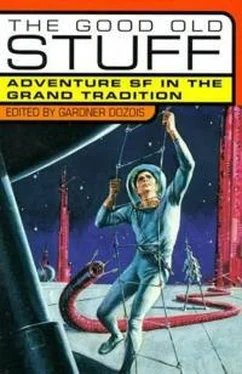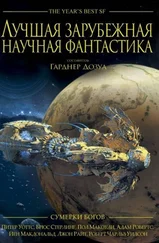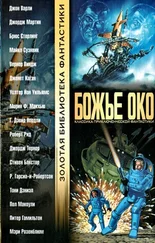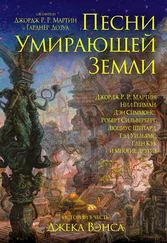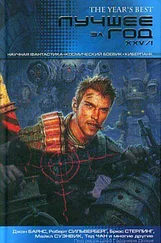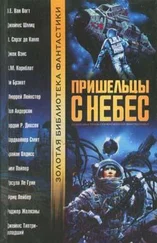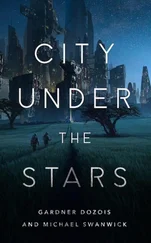Гарднер Дозуа - The Good Old Stuff
Здесь есть возможность читать онлайн «Гарднер Дозуа - The Good Old Stuff» весь текст электронной книги совершенно бесплатно (целиком полную версию без сокращений). В некоторых случаях можно слушать аудио, скачать через торрент в формате fb2 и присутствует краткое содержание. Год выпуска: 1998, ISBN: 1998, Издательство: St. Martin's Griffin, Жанр: Фантастика и фэнтези, на английском языке. Описание произведения, (предисловие) а так же отзывы посетителей доступны на портале библиотеки ЛибКат.
- Название:The Good Old Stuff
- Автор:
- Издательство:St. Martin's Griffin
- Жанр:
- Год:1998
- ISBN:0-312-19275-4
- Рейтинг книги:3 / 5. Голосов: 1
-
Избранное:Добавить в избранное
- Отзывы:
-
Ваша оценка:
- 60
- 1
- 2
- 3
- 4
- 5
The Good Old Stuff: краткое содержание, описание и аннотация
Предлагаем к чтению аннотацию, описание, краткое содержание или предисловие (зависит от того, что написал сам автор книги «The Good Old Stuff»). Если вы не нашли необходимую информацию о книге — напишите в комментариях, мы постараемся отыскать её.
The Good Old Stuff — читать онлайн бесплатно полную книгу (весь текст) целиком
Ниже представлен текст книги, разбитый по страницам. Система сохранения места последней прочитанной страницы, позволяет с удобством читать онлайн бесплатно книгу «The Good Old Stuff», без необходимости каждый раз заново искать на чём Вы остановились. Поставьте закладку, и сможете в любой момент перейти на страницу, на которой закончили чтение.
Интервал:
Закладка:
Not, he discovered finally, that there was any danger in this plate.
He found that out the moment he crawled onto it. The sensation of power that pulsed from it was so slight that, briefly, he doubted that it would lift from the ground. But it did. The test run lasted seven feet and gave him his measurement of the limited force he had available. Enough for an attack only.
There were no doubts in his mind. The experiment was over. His only purpose must be to kill the man, and the question was, how could he insure that the man did not kill him while he was doing it? The varnish!
He applied it painstakingly, dried it with a drier, and then, picking up the plate again, he carried it on his back to the hiding place he wanted. When he had buried it and himself under the dead leaves of a clump of brash, he grew calmer. He recognized that the veneer of his civilization was off. It shocked him, but he did not regret it. In giving him the food, the two-legged being was obviously doing something to him. Something dangerous. The only answer to the entire problem of the experiment of the tableland was to deal death without delay. He lay tense, ferocious, beyond the power of any vagrant thoughts, waiting for the man to come.
What happened then was as desperate a venture as Jamieson had seen in Service. Normally, he would have handled it expertly. But he was watching intently—for the paralysis to strike him. The paralysis that was of the varnish. And so, it was the unexpected normal act that confused him. The Rull flew out of a clump of trees mounted on the antigravity plate. The surprise of that was so great that it almost succeeded. The plates had been drained of all such energies, according to his tests, the first morning. Yet here was one alive again and light again with the special antigravity lightness which Rull scientists had brought to the peak of perfection.
The action of movement through space toward him was, of course, based on the motion of the planet as it turned on its axis. The speed of the attack, starting as it did from zero, did not come near the eight-hundred-mile-an-hour velocity of the spinning planet but it was swift enough. The apparition of metal and reticulated Rull body charged at him through the air. And even as he drew his weapon and fired at it, he had a choice to make, a restraint to exercise: Do not kill!
That was hard, oh, hard. The necessity imposed a limitation so stern that during the second it took him to adjust, the Rull came to within ten feet of him. What saved him was the pressure of the air on the metal plate. The air tilted it like the wing of a plane becoming air-borne. He fired his irresistible weapon at the bottom of the metal plate, seared it, and deflected it to a crash landing in a clump of bushes twenty feet to his right. Jamieson was deliberately slow in following up his success. When he reached the bushes, the Rull was fifty feet beyond them and disappearing into a clump of trees. He did not pursue it or fire a second time. Instead, he gingery pulled the Rull antigravity plate out of the brush and examined it.
The question was, how had the Rull degravidzed it without the elaborate machinery necessary? And if it were capable of creating such a “parachute” for itself why hadn’t it floated down to the forest far below, where food would be available and where it would be safe from its human enemy? One question was answered the moment he lifted the and gravity plate. It was about normal weight, its energy apparently exhausted after traveling less than a hundred feet. It had obviously never been capable of making the mile-and-a-half trip to the forest and plain below.
Jamieson took no chances. He dropped the plate over the nearest precipice and watched it fall into distance. He was back in the lifeboat when he remembered the “varnish.” There had been no cue; not yet. He tested the scraping he had brought with him. Chemically, it turned out to be simple resin, used to make varnishes. Atomically, it was stabilized. Electronically, it transformed light into energy on the vibration level of human thought. It was alive all right. But what was the recording? He made a graph of every material and energy level, for comparison purposes. As soon as he had established that it had been altered on the electronic level—which had been obvious but which, still, had to be proved—he recorded the images on a visiwire.
The result was a hodgepodge of dreamlike fantasies.
Symbols. He took down his book, Symbol Interpretations of the Unconscious, and found the cross-reference: “Inhibitions Mental.” On the referred page and line, he read, “Do not kill!”
“Well, I’ll be ...” Jamieson said aloud into the silence of the lifeboat interior. “That’s what happened.”
He was relieved, and then not so relieved. It had been his personal intention not to kill at this stage. But the Rull hadn’t known that.
By working such a subtle inhibition, it had dominated the attack even in defeat. That was the trouble. So far he had gotten out of situations but had created no successful ones in retaliation. He had a hope, but that wasn’t enough.
He must take no more risks. Even his final experiment must wait until the day the Orion was due to arrive. Human beings were just a little too weak in certain directions. Their very life cells had impulses which could be stirred by the cunning and the remorseless He did not doubt that, in the final issue, the Rull would try to stir him toward self-destruction.
On the ninth night, the day before the Orion was due, Jamieson refrained from putting out a can of food. The following morning he spent half an hour at the radio trying to contact the battleship. He made a point of broadcasting a detailed account of what had happened so far, and he described what his plans were, including his intention of testing the Rull to see if it had suffered any injury from its period of hunger.
Subspace was totally silent. Not a pulse of vibration answered his call. He finally abandoned the attempt to establish contact and went outside and swiftly set up the instruments he would need for his experiment. The tableland had the air of a deserted wilderness He tested his equipment, then looked at his watch. It was eleven minutes to noon. Suddenly jittery, he decided not to wait the extra minutes.
He walked over, hesitated, and then pressed a button. From a source near the screen, a rhythm on a very high energy level was being broadcast. It was a variation of the rhythm pattern to which the Rull had been subjected for four nights. Slowly Jamieson retreated toward the lifeboat. He wanted to try again to contact the Orion. Looking back, he saw the Rull glide into the clearing and head straight for the source of the vibration. As Jamieson paused involuntarily, fascinated, the main alarm system of the lifeboat went off with a roar. The sound echoed with an alien eeriness on the wings of the icy wind that was blowing, and it acted like a cue. His wrist radio snapped on, synchronizing automatically with the powerful radio in the lifeboat.
A voice said urgently: “Trevor Jamieson, this is the Orion. We heard your earlier calls but refrained from answering. An entire Rull fleet is cruising in the vicinity of the Laertes sun. In approximately five minutes, an attempt will be made to pick you up. Meanwhile, drop everything.”
Jamieson dropped. It was a physical movement, not a mental one. Out of the corner of one eye, even as he heard his own radio, he saw a movement in the sky: two dark blobs that resolved into vast shapes.
There was a roar as the Pull super-battleships flashed by overhead.
A cyclone followed their passage that nearly tore him from the ground, where he clung desperately to the roots of intertwining brush. At top speed, obviously traveling under gravitonic power, the enemy warships made a sweeping turn and came back toward the tableland. Jamieson expected death momentarily, but the fire flashed past; then the thunder of the released energies rolled toward him, a colossal sound, almost yet not quite submerging his awareness of what had happened. His lifeboat! They had fired at his lifeboat.
Читать дальшеИнтервал:
Закладка:
Похожие книги на «The Good Old Stuff»
Представляем Вашему вниманию похожие книги на «The Good Old Stuff» списком для выбора. Мы отобрали схожую по названию и смыслу литературу в надежде предоставить читателям больше вариантов отыскать новые, интересные, ещё непрочитанные произведения.
Обсуждение, отзывы о книге «The Good Old Stuff» и просто собственные мнения читателей. Оставьте ваши комментарии, напишите, что Вы думаете о произведении, его смысле или главных героях. Укажите что конкретно понравилось, а что нет, и почему Вы так считаете.
